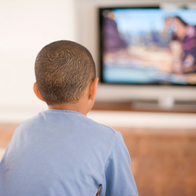|
This, what seems like an extended vacation time, is the ideal time for all children everywhere to let their creative juices flow! Even as they attempt to keep up with some level of formal academic work, there is less time assigned to this at present and more time is being spent on finding different, creative, practical and more innovative ways to both learn and play. Here are some suggestions to add to your growing toolbox/playbox:
0 Comments
As the uncertainty shifts beneath our feet and plans for reopening are being laid out, parents need to find ways to stay grounded and maintain stability for their children. Planning ahead and remembering to look after yourself are key to effective coping.
MAKE SELF-CARE A PRIORITY :
To end with a quote: "The present moment is the only moment available to us, and it is the door to all moments". Thich Nhat Hanh Anxiety in and of itself is not bad or dangerous. It is in fact a very natural part of the human experience. Anxiety helps to motivate and energize us to complete many important tasks such as studying for and writing exams, preparing for presentations, organizing events, executing household chores and providing care for those around us. When anxiety increases it can feel uncomfortable, and when it becomes extreme it can feel debilitating. When anxiety seriously affects someone’s ability to function in their everyday lives it is usually recommended that they seek professional help to learn how to manage their symptoms.
The below steps are some practical approaches that can be helpful to parents and care givers when dealing with pandemic-related anxiety:
“We’re all in this together” is the phrase being flashed at us via all types of media in an attempt to create a sense of connection, belonging, and meaning in a world that seems to be screeching to a halt with closed borders and physical distancing being the order of the day. Self-isolation, stay-at-home, lock-down, social distancing, have now become everyday terms being used to describe our present state of existence. Making rapid progression in a matter of weeks, this previously unknown and not well understood virus named Covid19 has overtaken the globe and is, as it were, holding us all to ransom.
So yes, we are all in this together, this collective trauma, characterized by “lack of predictability, immobility, loss of connection, loss of sense of time and sequence, numbing out and spacing out, and loss of safety” (Bessel van der Kolk, M.D.). Yet we are all experiencing this world crisis differently. Some may be feeling anxious and fearful, some may be feeling calm and controlled, and some may be feeling numb and helpless. Whatever the state we may find ourselves in on any given day, we need to remember that what we are feeling is a normal reaction to an abnormal situation. When the thoughts pop into your head: “What’s wrong with me? Why can’t I pull it together? Why am I not functioning as I normally do?”, the answer is: “Because you are a human being, a vulnerable human being, with strengths and weaknesses, thoughts and emotions, just like every other human being.” We are all in this together, whether we are sitting alone, or isolating with family, whether we are worried about running out of food and money, or have a well-stocked pantry. There seems to be a psychological thread that is running through every single person on the earth at present that is holding us all together, mobilizing us to fight this invader and to survive its destruction. There also seems to be an emotional bond stretched across the world that is gently supporting and lifting those who are intensely focused on and stressed by dealing with the logistics of managing this pandemic. Now more than ever, the old adage “one day at a time”, and sometimes breaking it down to “one hour at a time”, seems to be the way to move forward. The uncertainty which we are all facing can bring with it a sense of paralysis which we need to actively work to overcome. This heightened level of anxiety, sometimes bordering on panic and paranoia, can be effectively managed by following simple guidelines and implementing self-regulating techniques. For parents, caregivers and other adults that may be having difficulty managing anxiety, here is a format that may be helpful:
Though it feels like we’ve been thrown headlong into a world of digital communication, engaging in way more online interactions than our previous normal, it is important to pay attention in this new normal to the amount and quality of screen time our children are allowed to use in any given day. Watching television shows and movies, whether for school-related or entertainment purposes, should be determined and agreed upon by both adults and children, so that there is a time to turn on and a time to turn off. Due to the fact that video chatting is now the new normal for social interaction, this amount of screen time needs to be taken into account as well. Any screen time should be purposeful and meaningful, not random and passive. Many of the media gurus have stated that this challenging pandemic reality warrants flexibility with screen time for children, but that does not mean that there should be no control.
|
Author Lystra Mahabir-Mongroo BA/BSW, MSW. Archives
April 2021
Categories |

 RSS Feed
RSS Feed
